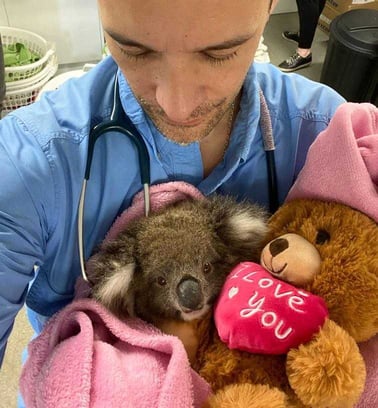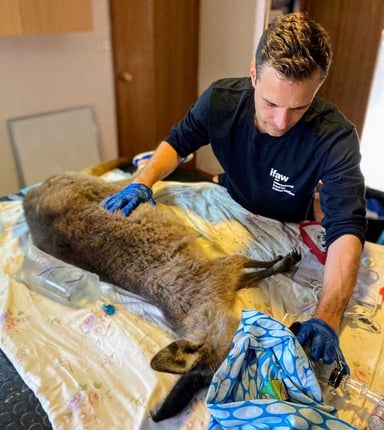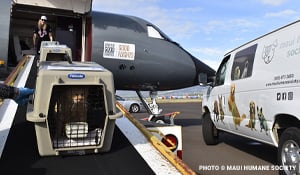Protecting Species Threatened by Australia’s Wildfires
Thanks to your generosity, wildlife in Australia is healing as their habitats begin to recover. Greater Good Charities is continuing to work with partners on the ground to care for the victims of the devastating wildfires that ravaged the country earlier this year. One of these partners is the International Fund for Animal Welfare (IFAW), which is providing veterinary care, essential equipment, and safe housing for wildlife in need.
So far, more than 178 koalas have been rescued, alongside countless other animals affected by the fires.

In February 2020, IFAW contracted wildlife veterinarian Dr. Paul Ramos to support the Possumwood Wildlife Treatment Facility, which has been overwhelmed with animals suffering from burns.
Wildlife Goes Viral
While there, his work with koalas received some international attention. The video that captured hearts around the world was one of a recently orphaned baby koala. While mourning the loss of her mother, the brave koala cub found strength in a stuffed koala presented to her by Dr. Ramos.
“I always have my phone on me and so I like to capture moments,” Dr. Ramos said of his experience.
He recalls another touching moment with a kangaroo and her joey.
“This mama, her ears are blackened and tarred, she might lose them, her fur is all singed, her hands and feet are completely burned. You could tell she had been through a lot. Her baby was completely untouched.”
Dr. Ramos says the baby would not have lived, had its mom not done everything in her power to keep him in her pouch and protect him, even if it meant risking her own life.

Still a lot of Work to be Done
Though the fires have died down, the work isn’t done. Dr. Ramos says that there are still hundreds of animals healing and waiting for their environment to be hospitable once again.
“This is not the first and definitely not the last time we’re going to see these massive natural fires,” Dr. Ramos said. “Going forward, for the next few months to years, these animals need to be supported in some way.”
While some animals are taking longer to heal, most of them just don’t have a home to return to right now. With bare trees and little to no grass, these animals would likely starve if released back to their homes.
Currently, injured animals at staying at clinics, warehouses, and even volunteers’ homes. Dr. Ramos believes funding for these immediate needs is crucial, but there are other ways to help.
How You Can Still Help
“Going forward, we need to think about the future, big picture. These extreme fire seasons are not natural, so what are we going to do to prevent these things from happening?” Dr. Ramos said.
Dr. Ramos believes small changes in our lifestyles, who we vote for, and truly thinking about what kind of future we want to have, can prevent these natural disasters from happening over and over again.
Greater Good Charities is committed to protecting wildlife and preserving the critical habitats they depend on. Your support makes it possible to provide emergency care, restore ecosystems, and fight the threats—like habitat destruction and illegal wildlife trade—that push animals closer to extinction.
Together, we can ensure that koalas, kangaroos, and countless other species have a safe future.
Donate to support Greater Good Charities' efforts to preserve critical habitat and stop the illegal wildlife trade.


.png)
